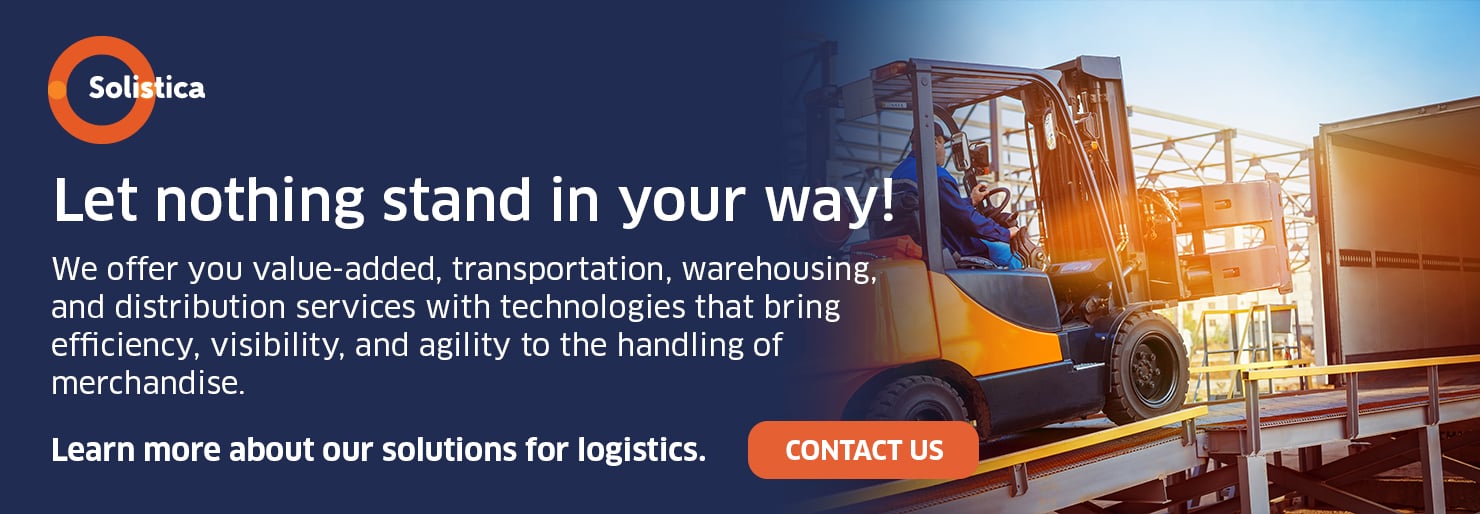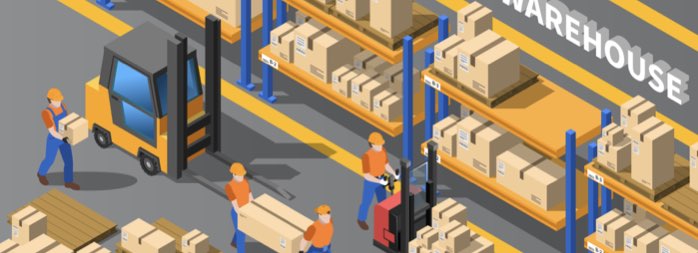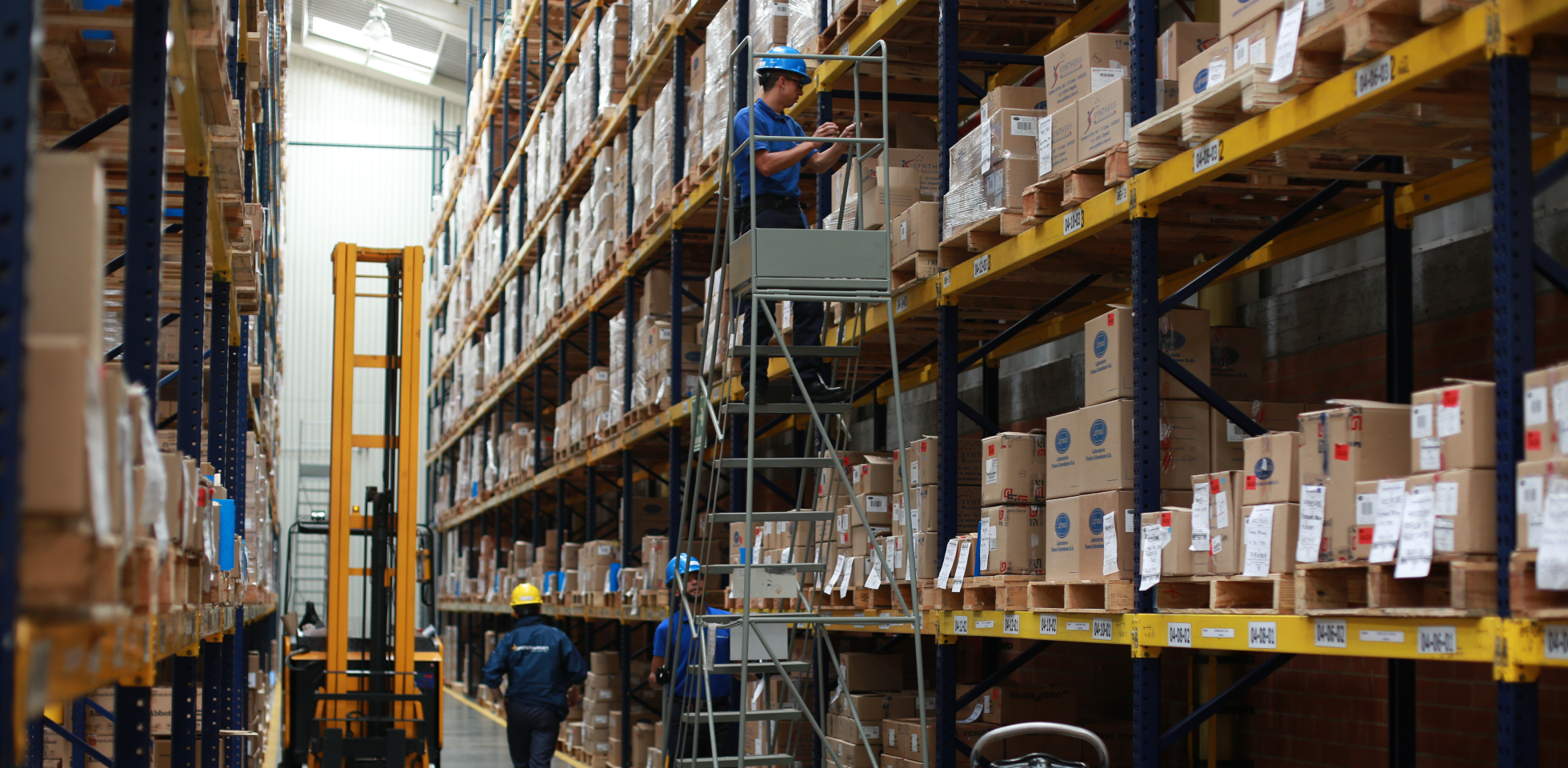If companies aim to optimize their warehouses, they should record all the processes carried out in that department, fully understand the special features of the products they handle and have storage spaces that provide an adequate protection and monitoring of the merchandise.
This may force companies to invest time on activities that are not directly linked to their core business, or on tasks that may result complex for not having the advanced technology and experts to expedite these processes. Therefore, a smart solution would be to hire a comprehensive logistics company that may apply its knowledge and experience in optimization.
Outsourcing means to stop operating some of the business’ departments directly and instead handing them to a specialized external supplier, which brings great advantages for companies which hire these services. Among other things it allows them to:
- Focus on core activities that add value to the business.
- Access specialized consulting services from logistics experts.
- Combine efforts to exceed the goals of logistics and improve the commercial indicators.
- Acquire external ideas or supplement those already in place thanks to the supplier’s expertise.
- Occupy less work space and invest less in human capital.
- Turn some fixed costs into variable costs, which some companies may find in their benefit.
We show you next some of the advantages of outsourcing the operation of your warehouse to an expert:
In terms of efficiency:
- Implementing a lean philosophy in the logistics’ processes; in other words, eliminate waste and activities that do not add value to the product or service offered to clients. When this model is applied on the gathering and packaging stages it asks us to invest less time on finding or checking the stock and makes restocking more accurate.
- Designing and managing omnichannel warehouses that protect the inventories of several channels, which helps companies be more flexible when adapting to the demand and decrease their labor costs.
- Assessing the efficiency so companies can see if they are using resources the best possible way and avoid problems that may affect the whole supply chain.
- Carrying out operational audits for warehouses that help set the times of the logistics’ processes and the distribution of space. These revisions should be as frequent as needed, but we suggest carrying them out at least once a year.
In terms of productivity:
Automating processes that result in increased production levels and accuracy in the warehouse and in substantial savings in hiring staff.
- Setting the gathering methodology – or carrying out an analysis of the one in place, so companies can learn if it fits their vision. The process of selection has a direct impact on the productivity of the supply chain.
- Improving communication between departments and systems by providing critical information for every order to avoid changes to the storage date’s assigning system.
- Implementing gathering strategies that include grouping and packaging components in personalized kits, thus lowering the inventory handling time and helping make better use of space.
- Using high-quality technological tools and devices that companies usually do not buy because of the high price tags but that significantly improve accuracy and productivity.
- Providing real-time reports with correct metrics that show the productivity levels and costs. By measuring results per operator and shift we foster accountability among employees so companies can guarantee meeting their flow.
- Minimizing errors such as mislabeled or misplaced products, and incomplete or incorrect orders because they have the best warehouse management systems, WMS, that eliminate errors, check data, create forecasts, and notify interruptions. When companies hire this service from a logistics company, clients access these benefits without having to invest in costly software.
- Scheduling maintenance that help identify issues before it is too late to solve them.
- Implementing the cross-docking technique, which consists in unloading the materials from incoming units and immediately loading them on outgoing units to keep them in storage the least possible time. This practice is especially beneficial for perishable products.
In terms of safety during the operation
- Consistently making suggestions on safety and protective gear to avoid accidents such as slipping, stumbling, or falling. This includes designing safe routes, setting high safety standards, placing adequate signs and lighting.
- Advising and taking part in creating a culture of safety led by a committee that designs a prevention plan to protect employees and result in savings, increased productivity, and less damaged facilities and stock.
In terms of merchandise safety:
- Implementing a geolocation system that yields detailed information for monitoring shipments in real time.
Contributions a logistics supplier may offer to warehouse design and organization
- Avoid mixing different products in the same shelf, which results in increased productivity and less investment of time.
- Maximize shelves through vertical storage strategies and narrow isles that allow adding more positions in the same space.
- Assess shelving systems according to the storage and protection needs that lower the number of touches and the mobilization of staff in charge of gathering.
To make these contributions a reality, logistics companies use certain technologies in the services they offer, such as:
- Advanced Shipping Notice (ASN) systems that inform about delays, interruptions, and deviations, most of all for procurement and inventory management processes.
- Radio Frequency Identification (RFID) systems that optimize the materials’ reception and monitoring processes in a profitable manner.
- Warehouse Management Systems (WMS) that support the daily warehouse operations such as task management, inventory monitoring, and efficient product returns. These may be supplemented with scanners or voice systems.
- Staff Demand Platform that establishes the number of employees needed for each logistics’ task according to historical data.
When companies optimize warehouse operations and make the processes carried out in them more efficient, they keep costs down and clients satisfied, which leads to finding specialized logistics companies, such as Solistica, that help efficiently keep operations updated.
Because it works with several clients, Solistica applies transformational logistics, which, among other things, consists of implementing the best practices from different sectors, thus making sure clients get the best service and profitability.







